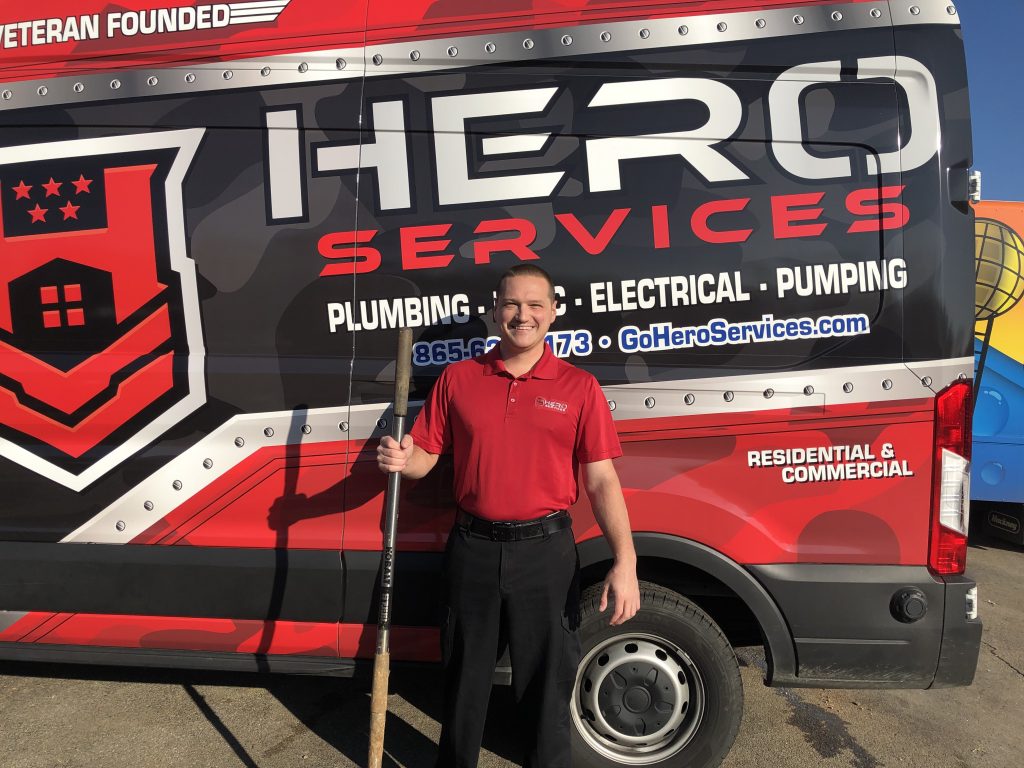We are rebranding to GoHero Home Services. New Website Coming Soon!
Menu
We are rebranding to GoHero Home Services. New Website Coming Soon!
Instead of charging by time and material, were you don’t know what the price is until we’re done. We do StraightForward pricing. That means there are no hidden fees. Parts, labor, supplies, warranties etc. are all given in one price before we start the work. So, the price you approve is the price you pay.
Estimating a job accurately is impossible without seeing it ourselves. In our experience giving a ballpark price ends in one of two ways
1. We quote it too high and you choose another provider, based on misinformation.
2. We quote it too low and you will be upset when you find out the real price. We find it best to send a technician to you to assess the situation and give you a straightforward price that you can rely on
Yes. We are fully licensed and we will do every job up to code.
Our trucks are fully stocked to handle every common issue and over 90% of every other situation. That way we can save you time and money.
Yes. We have easy to apply for financing options. There are several to choose from including 0% interest and same as cash. There is no need to wait for that repair or replacement. Apply today.
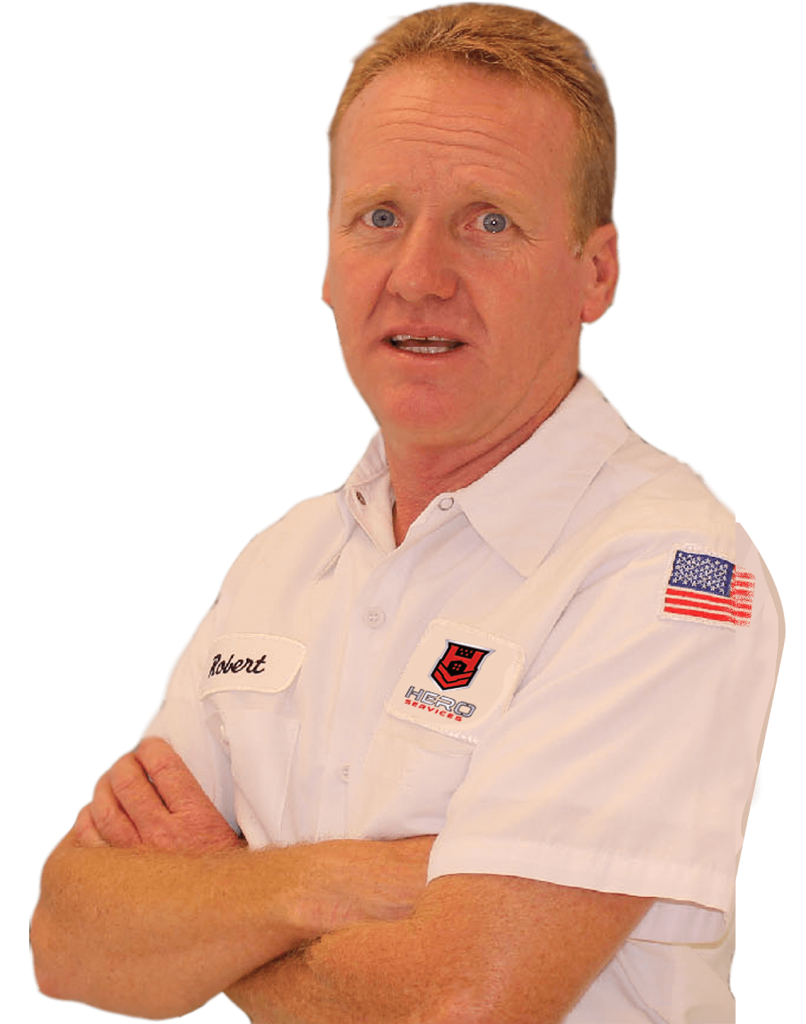
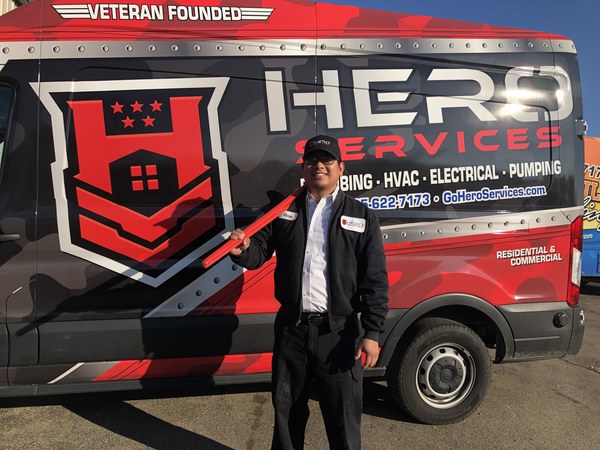
Pipe corrosion can be caused by a number of things, almost all of which are related to water quality, including:
If you think you have a leak in your home, there’s an easy way you can check. Go out to your water meter and record the level. Make sure no one uses any water for a few hours, then go back and check the meter again (it’s easiest to do this when everyone goes to bed, then check it again first thing in the morning). If the level has changed, you probably have a leak – call Hero Services to have it taken care of right away!
Yes! Not only do leaks get larger with age (see above) but they can also potentially cause damage to your home. Leak detection and repair offers a number of other benefits, including:
Yes. Water leaking out of your pipes or fixtures will eventually cause enough corrosion that even a pinhole-sized leak can eventually grow and potentially cause damage to your home.
Most faucets can be cleaned with a damp, soft cloth. If you just installed new faucets, you may want to find out if the manufacturer has any recommended cleaning solutions for more stubborn stains. Make sure to avoid any abrasive cleaners or pads – these may scratch the surface and finish of your faucet.
To keep your HVAC system running in tip-top shape, we recommend a maintenance appointment twice a year (once for heat, once for air conditioning). This way, an Oliver technician can check your filters, coils, wiring, housing, motor, and more to make sure you’re getting the most out of your system.
Don’t worry! Whether your problem happens at three in the morning or on the 4th of July, our HVAC service experts are available 24 hours a day, 7 days a week to get your system back up and running.
To answer that, you’ll need an appointment with one of our HVAC service experts. We’ll come to your home and evaluate its size, heating and cooling needs, environment, and the work we’ll need to do. Then, we can recommend the best system for you and install it quickly.
There are plenty of things, such as:
If your HVAC system requires constant repairs, is 15 years or older, or can’t heat or cool your home properly, we recommend you replace it. When an HVAC system ages, it doesn’t operate as efficiently and could actually end up costing you more money than it should.
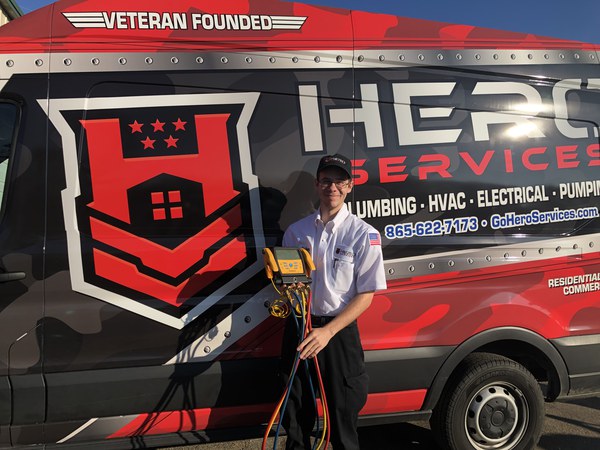
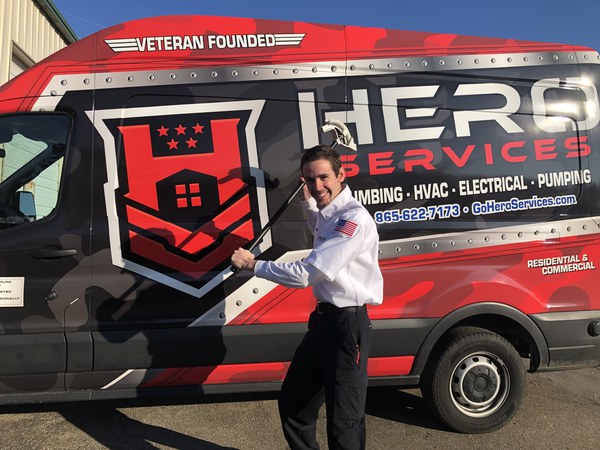
Frequent breaker trips could be a sign that the circuit is being overloaded somewhere on the property. A wire, socket, or appliance could be overheating, which could eventually cause a fire.
A light bulb that prematurely burns out in a particular lamp or socket is a sign of a poor electrical connection causing heat build-up in the lamp. Identifying the poor connection and repairing it should resolve the issue.
Yes. A loose plug in an outlet results in high electrical resistance. Electrical resistance causes overheating, which often results in a fire. An overheating outlet may also damage the connected device or appliance. Replacing an electrical outlet is a relatively inexpensive task.
A breaker could be loose, or a hot breaker is allowing current to flow between hot and neutral. Either issue should be inspected immediately by a qualified electrician.
The National Electric Code (NEC) requires new installations to provide a second neutral on all 220V appliances. You can replace the four-prong cord with a three-prong cord, but the safer option would be to upgrade the electrical supply to your 220V appliances.
No. Unless your whole system is traffic rated, parts of it will not be able to support the weight of a vehicle. If a portion of your system gets crushed, failure may occur.
We do not recommend using any acid-based drain openers. Many of them contain a fair amount of sulfuric or muriatic acid, which can accelerate acid damage to your tank.
When used in moderation, most cleaning chemicals are okay, but high concentrations or excessive amounts of bleach or detergent can stunt or eliminate the anaerobic bacterial action that keeps your system flowing.
Most residential septic systems were designed to handle 1.5 persons per bedroom. So, if you have a three bedroom home, your system was designed to handle no more than 4.5 persons. In this situation, housing 9 or 10 people would not be wise as you would risk overwhelming your system.
Your system is not intended to be support a laundromat. In fact, you probably shouldn’t do more than a couple loads of laundry a day. We recommend that you spread your laundry throughout the week so that you do not have to do it all in one day. Most washing machines use 70 to 100 gallons of water per load of laundry. (High efficiency, front loading washing machines are an exception as they only use 15-35 gallons per load.) Brand new, your system can only get rid of 350 gallons per day or less. Don’t test it; it isn’t worth it.
